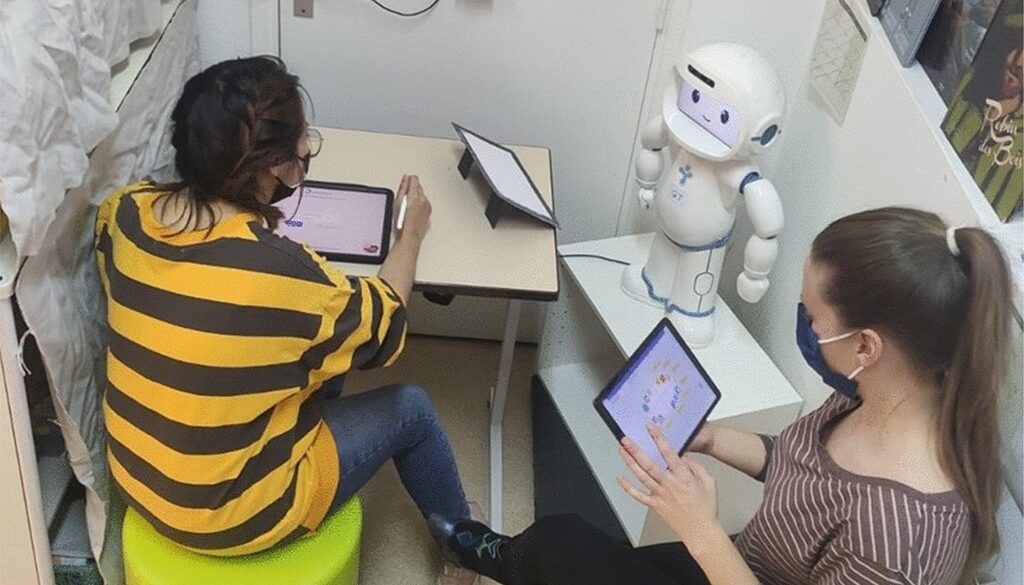
Abstract:
Neurodevelopmental disorders (NDD) are a group of conditions impacting children’s neurodevelopment, affecting their personal, social, and educational functioning. Social robots have shown promising results in the rehabilitation of children with NDD, improving learning outcomes. This study aims to understand how a social robot should support caregivers during the rehabilitation of children with NDD. Using a Design-Based Research approach, the researchers investigated this question by considering the perspectives of the most concerned and expert individuals: children with NDD and their caregivers.
The collaborative and iterative design of R2C3, a social robot intended to assist caregivers and children during rehabilitation sessions in a learning-by-teaching scenario, is presented. Twenty-seven caregivers and six children participated in the iterative design and evaluation of R2C3, resulting in the development of a Wizard-of-Oz interface and a library of 120 robot behaviors. The researchers then studied how caregivers utilized these behaviors during rehabilitation sessions.
Findings indicate that caregivers primarily used the robot to provide positive reinforcements, elicit reflection and knowledge during shared handwriting activities, and support children’s error acceptance. However, the use of positive reinforcement by caregivers significantly decreased as the sessions progressed.
Reference:
Zou, Jianling, et al. “R2C3, A Rehabilitation Robotic Companion for Children and Caregivers: The Collaborative Design of a Social Robot for Children with Neurodevelopmental Disorders.” International Journal of Social Robotics (2024): 1-19.